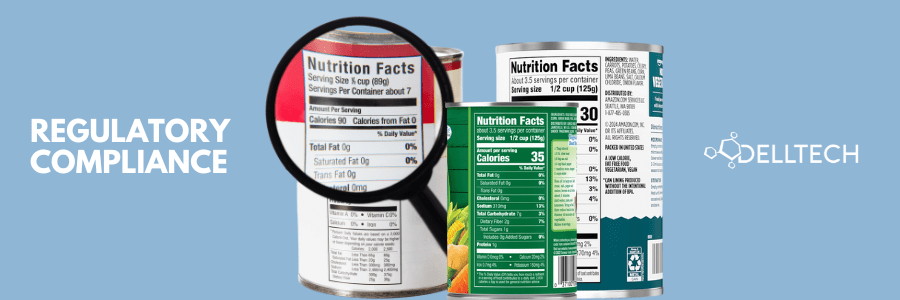Written by: Joanna Chudyk
Vegemite lovers may be surprised to learn that the iconic Australian spread was recently removed from the shelves of Found Coffee, a small business in Ontario, following a shipment inspection by the Canadian Food Inspection Agency (CFIA). Despite its decades-long presence in Canada and continued availability in major grocery stores, Vegemite has come under scrutiny. A similar situation occurred in 2020 with Marmite—the UK’s equivalent yeast extract spread—but in that case, CFIA ultimately allowed the product to remain on shelves.
Understanding the Regulations
All food sold in Canada is regulated under the Food and Drugs Act, which outlines the requirements for food products and ingredients. This includes conventional foods, standardized foods, and food additives.
Canadian regulations permit the addition of nutrients—such as vitamins, minerals, and amino acids—either for mandatory or voluntary fortification, or under the category of Supplemented Foods. Fortification helps ensure Canadians receive essential nutrients in everyday items, like Vitamin A and D in margarine or Vitamin D in milk.
Unlike fortified foods, Supplemented Foods are designed to enhance the diet of consumers seeking additional nutrients. These products are governed by the Supplemented Food Regulations, which were officially published in 2022. Prior to this, supplemented foods could be sold under a Temporary Marketing Authorization issued by Health Canada’s Food Directorate.
Why Did the CFIA Deem Vegemite “Non-Compliant”?
While supplemented foods can now be sold without pre-market approval, companies are still responsible for ensuring compliance with all relevant regulations before launching a product in Canada.
So where does Vegemite fall short?
Currently, only specific food categories are permitted to be supplemented with nutrients. These include:
- Carbonated or non-carbonated water-based beverages
- Fruit or vegetable drinks (from concentrate), fruit/vegetable nectars, and smoothies
- Juices
- Single-serving, pre-packaged tea, coffee, or herbal infusions
- Bars
- Hard, soft, or semi-soft candies
- Chocolate confections
- Chewing gum
- Ice pops
As you can see, “spreads” are not on the list of permitted supplemented food formats. Therefore, a product like Vegemite—fortified with B-vitamins—falls outside of the current regulatory framework.
What’s Next for Vegemite?
Any company looking to bring a supplemented food into Canada must first ensure all ingredients are compliant with Canadian regulations. It’s also essential that the levels of added nutrients—such as B-vitamins—fall within the allowable ranges.
For Vegemite or similar fortified spreads to be sold legally, an amendment would need to be made to the List of Permitted Supplemented Food Categories to include “spreads” as an acceptable format. Fortunately, many Canadian regulatory documents are now Incorporated by Reference, which means updates can be made more efficiently than through traditional regulatory amendments.
Is Vegemite Being Banned?
It’s unlikely that Vegemite will be outright banned in Canada. So far, it has only been removed from the shelves of one small Toronto business. Marmite faced a similar issue and was ultimately allowed to remain on the market.
However, this raises important questions for other niche or imported food products. What happens if your product doesn’t have a strong brand presence or loyal customer base to draw attention to its removal? What if it simply flies under the radar—until it doesn’t?
How to Stay Compliant
The best way to protect your product from enforcement actions or recalls is to ensure full compliance before going to market—from your ingredient list to your product label.
Have a product you’re unsure about? Concerned it may not meet Canadian regulations? Or maybe you just want to understand the ins and outs of Canada’s food compliance requirements?
Contact the Dell Tech team today for expert guidance and peace of mind.
DELL TECH HAS PROVIDED PROFESSIONAL, CONFIDENTIAL CONSULTING SERVICES TO THE SPECIALTY CHEMICAL INDUSTRY IN CANADA, THE USA, EUROPE AND ASIA FOR THE LAST 40 YEARS.
[INSERT_ELEMENTOR id=5705]




